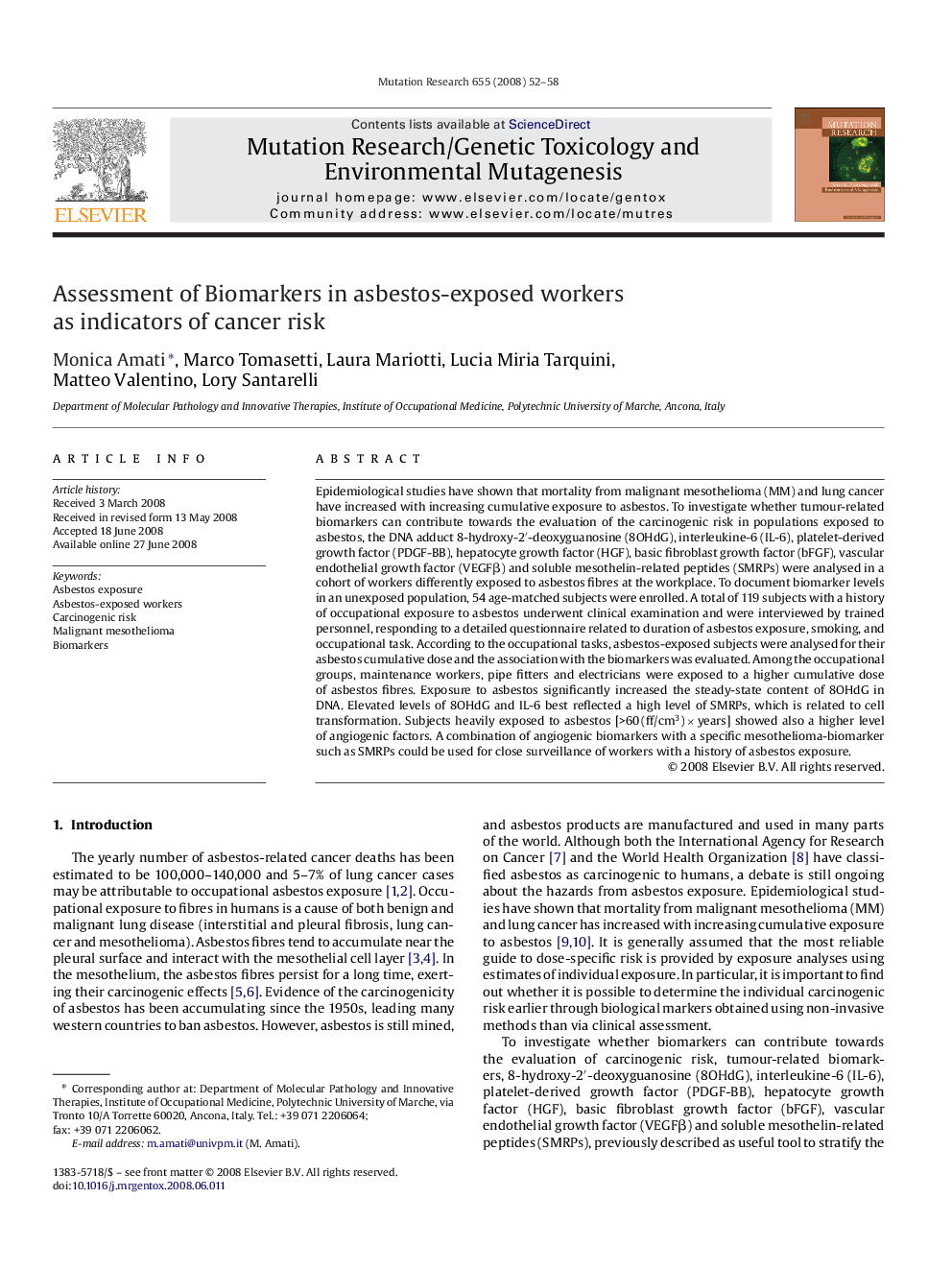| Article ID | Journal | Published Year | Pages | File Type |
|---|---|---|---|---|
| 2148993 | Mutation Research/Genetic Toxicology and Environmental Mutagenesis | 2008 | 7 Pages |
Abstract
Epidemiological studies have shown that mortality from malignant mesothelioma (MM) and lung cancer have increased with increasing cumulative exposure to asbestos. To investigate whether tumour-related biomarkers can contribute towards the evaluation of the carcinogenic risk in populations exposed to asbestos, the DNA adduct 8-hydroxy-2â²-deoxyguanosine (8OHdG), interleukine-6 (IL-6), platelet-derived growth factor (PDGF-BB), hepatocyte growth factor (HGF), basic fibroblast growth factor (bFGF), vascular endothelial growth factor (VEGFβ) and soluble mesothelin-related peptides (SMRPs) were analysed in a cohort of workers differently exposed to asbestos fibres at the workplace. To document biomarker levels in an unexposed population, 54 age-matched subjects were enrolled. A total of 119 subjects with a history of occupational exposure to asbestos underwent clinical examination and were interviewed by trained personnel, responding to a detailed questionnaire related to duration of asbestos exposure, smoking, and occupational task. According to the occupational tasks, asbestos-exposed subjects were analysed for their asbestos cumulative dose and the association with the biomarkers was evaluated. Among the occupational groups, maintenance workers, pipe fitters and electricians were exposed to a higher cumulative dose of asbestos fibres. Exposure to asbestos significantly increased the steady-state content of 8OHdG in DNA. Elevated levels of 8OHdG and IL-6 best reflected a high level of SMRPs, which is related to cell transformation. Subjects heavily exposed to asbestos [>60 (ff/cm3) Ã years] showed also a higher level of angiogenic factors. A combination of angiogenic biomarkers with a specific mesothelioma-biomarker such as SMRPs could be used for close surveillance of workers with a history of asbestos exposure.
Related Topics
Life Sciences
Biochemistry, Genetics and Molecular Biology
Cancer Research
Authors
Monica Amati, Marco Tomasetti, Laura Mariotti, Lucia Miria Tarquini, Matteo Valentino, Lory Santarelli,
